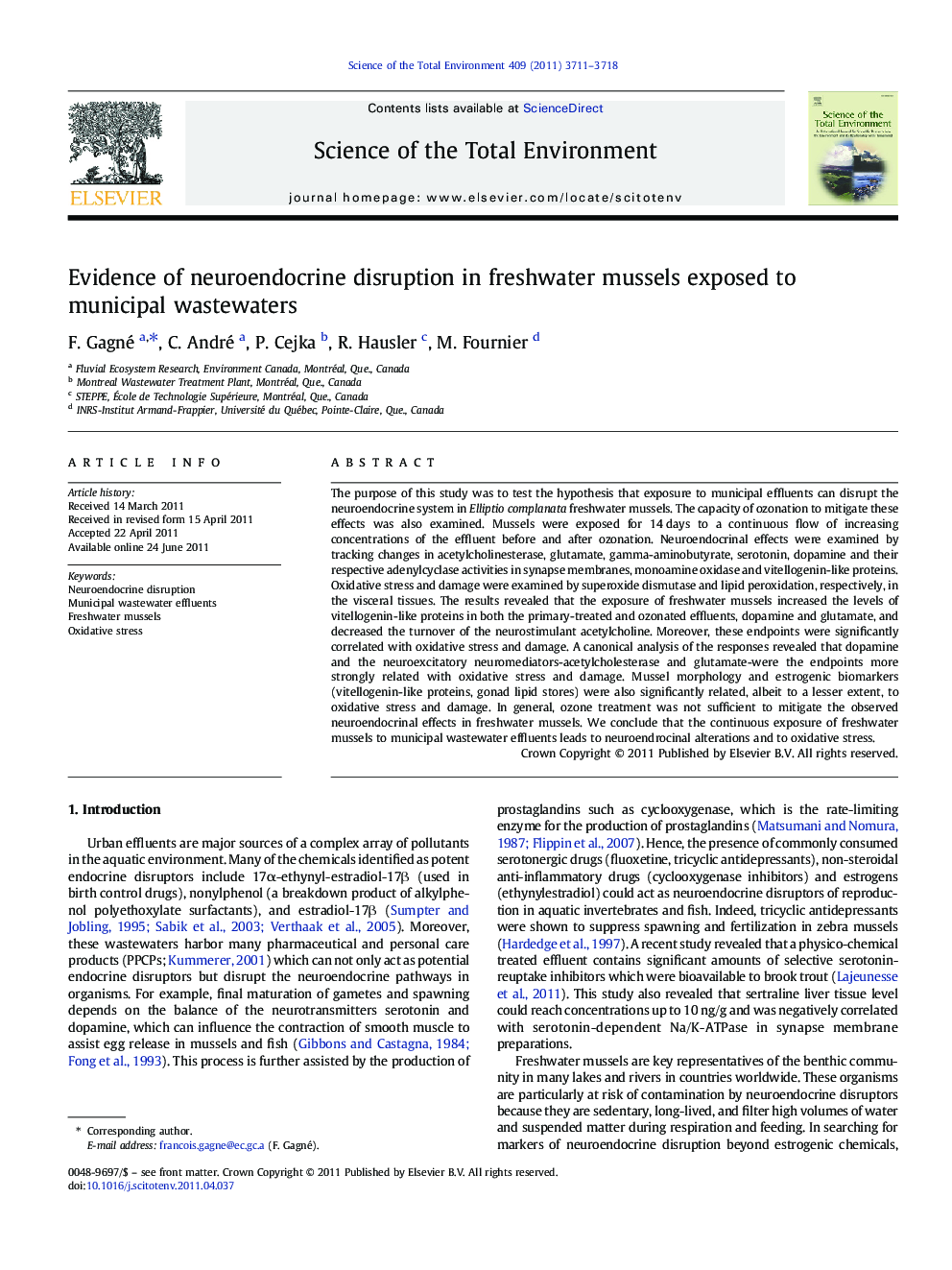| کد مقاله | کد نشریه | سال انتشار | مقاله انگلیسی | نسخه تمام متن |
|---|---|---|---|---|
| 4430026 | 1619843 | 2011 | 8 صفحه PDF | دانلود رایگان |

The purpose of this study was to test the hypothesis that exposure to municipal effluents can disrupt the neuroendocrine system in Elliptio complanata freshwater mussels. The capacity of ozonation to mitigate these effects was also examined. Mussels were exposed for 14 days to a continuous flow of increasing concentrations of the effluent before and after ozonation. Neuroendocrinal effects were examined by tracking changes in acetylcholinesterase, glutamate, gamma-aminobutyrate, serotonin, dopamine and their respective adenylcyclase activities in synapse membranes, monoamine oxidase and vitellogenin-like proteins. Oxidative stress and damage were examined by superoxide dismutase and lipid peroxidation, respectively, in the visceral tissues. The results revealed that the exposure of freshwater mussels increased the levels of vitellogenin-like proteins in both the primary-treated and ozonated effluents, dopamine and glutamate, and decreased the turnover of the neurostimulant acetylcholine. Moreover, these endpoints were significantly correlated with oxidative stress and damage. A canonical analysis of the responses revealed that dopamine and the neuroexcitatory neuromediators-acetylcholesterase and glutamate-were the endpoints more strongly related with oxidative stress and damage. Mussel morphology and estrogenic biomarkers (vitellogenin-like proteins, gonad lipid stores) were also significantly related, albeit to a lesser extent, to oxidative stress and damage. In general, ozone treatment was not sufficient to mitigate the observed neuroendocrinal effects in freshwater mussels. We conclude that the continuous exposure of freshwater mussels to municipal wastewater effluents leads to neuroendrocinal alterations and to oxidative stress.
Research highlights
► The toxicity of surface water extracts were examined in rainbow trout hepatocytes.
► The samples were collected from upstream and downstream sites of oil sands extraction activity, groundwater and oil sand tailings water.
► The results revealed that the tailings were rich in light polyaromatic hydrocarbons and decreased glutathione S-transferase activity.
► The surface water samples from the Athabasca river downstream the mining activities exhibited more oxidative stress.
► Groundwater samples showed evidence of contamination from the tailings.
Journal: Science of The Total Environment - Volume 409, Issue 19, 1 September 2011, Pages 3711–3718